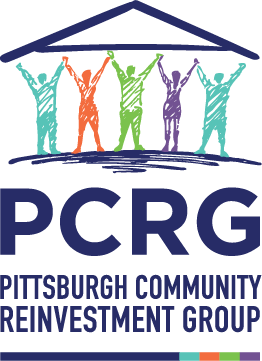Federal Updates
Trump’s 2026 Budget Proposal
The Trump Administration recently released its proposed FY2026 budget, which includes a sweeping 22% cut to non-defense discretionary spending. These cuts would significantly impact critical federal programs that support our neighborhoods, small businesses, and vulnerable populations.
Among the most concerning proposals are:
Deep reductions in HUD and USDA Rural Development staffing and programs, threatening affordable housing, rental assistance, and community development resources.
Elimination of NeighborWorks America and the U.S. Interagency Council on Homelessness — two entities vital to housing counseling, homeownership, and homelessness response.
Massive cuts to CDFI Fund, reducing support for mission-based lenders that serve underbanked communities.
Cuts to renewable energy programs at the EPA and the Department of Energy, including support for electric vehicle (EV) chargers, renewable energy deployment and environmental education initiatives.
We’ve seen this playbook before. During President Donald Trump’s first term, many of these same programs were slated for elimination — only to be saved by bipartisan action during the Congressional appropriations process. While this proposal is not final, it sets the stage for difficult negotiations and reinforces the need for strong advocacy.
Appropriation Committees in the House and the Senate have begun holding hearings with federal agencies on the budget proposal and will continue to do so through the summer.
State Updates
Housing Preservation Program Legislation Coming Soon
The long-awaited co-sponsorship memos for Pennsylvania’s new Housing Preservation Program — formally known as the Whole Home Repairs Program — have been introduced in both the House and Senate. This rebranded initiative remains a vital tool for preserving our state’s aging housing stock, stabilizing communities, and keeping residents housed.
The program provides critical funding for homeowners to address urgent home repairs, resolve code violations, and make energy efficiency updates. In a time of escalating housing costs and limited affordable options, investing in preservation is essential to maintaining affordability and preventing displacement.
We urge all members and supporters to contact your state legislators today and ask them to co-sponsor this critical housing priority.
Public Transit Crisis Looms Without State Action
Pittsburgh Regional Transit (PRT) is facing a $117 million annual shortfall that could lead to a 35% reduction in service and fare increases — disproportionately impacting low-income residents, students, and essential workers . PRT has already tapped $50 million from its reserves this year to cover operating gaps.
On June 12, PCRG’s Director of Policy Chris Rosselot delivered testimony to Pittsburgh Regional Transit (PRT) staff and board underscoring the urgency for lawmakers to secure sustainable, long-term funding for public transit agencies across Pennsylvania — including PRT. PCRG also submitted a formal letter to legislative leaders emphasizing the urgent need for investment in accessible, reliable transit. View the letter here.
Public comments are accepted through June 18. Make Your Voice Heard!
Several state legislative proposals have emerged to address this issue, including:
Creating a regional transit authority
Increasing car rental taxes to fund public transit
Exploring privatization of transit fleets
The state budget must be finalized by June 30.
Allegheny County May Primary Recap
Pittsburgh’s Mayoral Race
Corey O’Connor, Allegheny County Controller, defeated incumbent Ed Gainey in the Democratic primary, winning approximately 54% to 46%.
On the GOP side, Tony Moreno edged out Thomas West. Given the city’s overwhelming Democratic majority (a more than 5:1 voter registration ratio), O’Connor is strongly favored to win the general election in November.
The race drew unprecedented outside money — more than $600,000 was spent independently on ads and organizing for both campaigns. The flood of independent PAC spending, which bypasses local campaign limits, has raised concerns about transparency and external influence on city governance.
Key Ballot Measures
Pittsburgh voters approved three Home Rule Charter amendments that:
Strengthen anti-discrimination protections
Confirm public ownership of water/sewer systems
Clarify lawful authority for voter-led referenda
Pittsburgh Public Schools Board
Winners include:
Tawana Cook Purnell (D1)
Errika Grayson (D3)
Tracey Reed (D5)
Eva Diodati (D7)
Gene Walker (D9).
Allegheny Court of Common Pleas
From a crowded field of 22 candidates, voters selected eight nominees for the trial court that handles housing, family law, criminal and civil cases. The top finishers include:
Amanda Green-Hawkins
Dan Miller
Quita Bridges
Julie Capone
Anothony DeLuca
Heather Schmidt Bresnahan
Jamine Marie Hickton
Mathew Rudzki
The winners represent a mix of sitting judges, public defenders, and private attorneys. Many emphasized commitments to judicial equity, restorative justice, and increasing access to legal resources for low-income residents.
These judges will influence how justice is administered across Allegheny County for years to come — including decisions that affect eviction proceedings, housing court, and family stability.
Why It Matters
With Controller O’Connor poised to become Pittsburgh’s next mayor — and many council members aligned with his policy agenda — PCRG members are entering a critical transition period.
During Mayor Ed Gainey’s “lame duck” period, we must continue pressing current officials to advance unfinished priorities such as:
Land bank agreements
Zoning and code reforms
Community reinvestment commitments
At the same time, we must begin building strong relationships with the incoming O’Connor administration — by sharing neighborhood priorities, showcasing success stories, and advocating for community-centered appointments and policies.
By acting now and preparing for what’s next, we can ensure a stronger, more equitable foundation for neighborhoods under the next mayoral administration.

